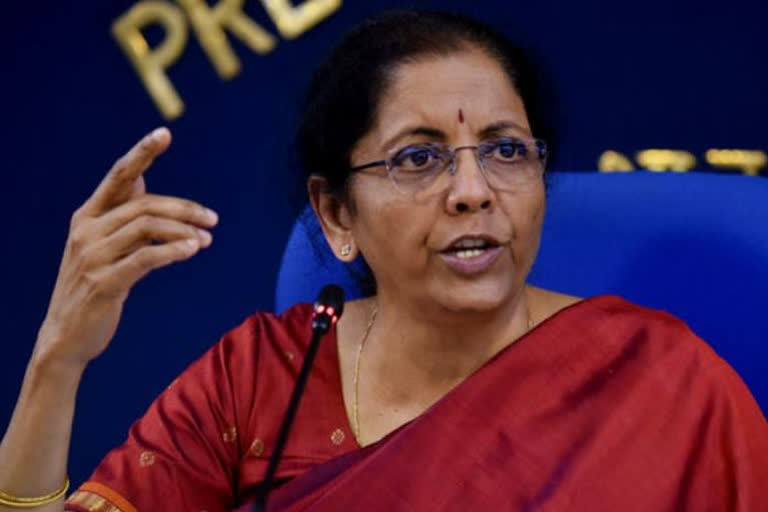Hyderabad: The COVID-19 pandemic, which has unfolded in front of our eyes, threatens to cause devastation in the magnitude of a World War. The countries which failed to take preventive steps have suffered enormous human loss and those which took precautions have faced severe economic distress -- drop of gross domestic productivity to shocking depths.
With the lockdown imposed by India six weeks ago giving preference to human life, the country's economy has literally been admitted into the ICU. Protection of public health is the Constitutional responsibility of the governments. At a time when state governments are mobilising all their energies to save their people from the virus, the catastrophe of financial deficit is posing a real challenge.
The tax revenue that the states themselves collect is 46 per cent, and non-tax revenue is eight per cent; the rest is the share of central taxes (26 per cent) and grants (20 per cent). The important income sources of the state governments, i.e. SGST (39.9 per cent), VAT on petro-products (21.5 per cent), Excise (11.9 per cent), Stamps-Registration (11.2 per cent) and Vehicle Tax (5.7 per cent) have stopped during the lockdown.
Telangana's revenue last month was Rs 5,000 crore; but the real income was just Rs 500 crores. The Uttar Pradesh Govt received Rs 2,284 crores in April and the requirement on account of salaries and allowances itself was Rs 12 thousand crores! It is perfectly reasonable for the state governments squeezed between income and expenditure imbalance, to expect the Centre to provide financial relief to them in these extraordinary war-like circumstances. Due to poor income through tax collections, as compared with the budget estimates, there will be a shortfall of Rs two lakh crores towards transfer of funds to the states, which is really concerning. The Centre must rescue the states from this financial crisis.
Read: There may be some truth to Lab Leak Theories
For decades, the concept of cooperative federalism has been the norm in the Indian economy. But states' financial autonomy has been a mirage. Though the Fourteenth Economic Council voted for the 42% shareholding of the states, there is no flow of funds to that extent. Under the GST Act, which came into effect in 2017, states have transferred a large part of their tax powers to the GST Council. In the absence of no clarity on what the Fifteenth Financial Commission is going to do under the new guidelines, the state governments have no option except getting along with debt obligations under the Fiscal Responsibility and Budget Management (FRBM) Act 2003.
Studies confirm that the states' financial budgets are more affected than the Centre because of the Corona effect. The states have estimated that during the last financial year they would get Rs 3.26 lakh crore through VAT and sales tax, Rs 1.75 lakh crores on excise duty; 1.4 lakh crores through Stamps and Registrations! Thanks to the Corona effect, all the estimates have come to a naught. The states are in a fix as to how to meet the day to day expenses and the funds required to combat the Corona crisis.
Kerala is strongly advocating for GST dues from the Centre. Even if the RBI increases the limit for temporary adjustment of funds, there may not be any substantial relief to the states. Many states are seeking to amend the FRBM Act and provide for an additional two per cent lending. Only when the Centre ensures the economic well-being of the States, will they be able to fight effectively against COVID-19.



